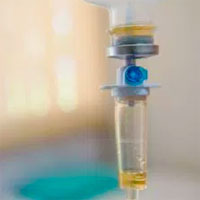Tag: septic shock

Importance of Second Antibiotic Doses in ED Sepsis Patients
Most studies evaluating early antibiotic administration in sepsis patients focus on timing of the first dose. We highlight many of these studies in our recent review article on Appropriate Antibiotic Therapy in Emergency... read more

Pooled analysis of higher versus lower blood pressure targets for vasopressor therapy septic and vasodilatory shock
Targeting higher blood pressure targets may increase mortality in patients who have been treated with vasopressors for more than 6 h. Lower blood pressure targets were not associated with patient‑important adverse events... read more

Adjunctive Glucocorticoid Therapy in Patients with Septic Shock
Among patients with septic shock undergoing mechanical ventilation, a continuous infusion of hydrocortisone did not result in lower 90-day mortality than placebo. We randomly assigned patients with septic shock who were undergoing... read more

Should We Manage All Septic Patients Based on a Single Definition?
It is indisputable from the biological and clinical perspectives that not all cases of sepsis are the same. On the contrary, most have great many differences, that is, different portals of entry, clinical manifestations,... read more

Hypothermia in Sepsis – The CASS Trial
Sepsis and especially septic shock (no matter what definition you use) is a recipe for multi-organ dysfunction and poor prognosis. In the past few years, we saw a lot of failed attempts trying to find something that could... read more

I survived sepsis eight times. But can care workers spot this deadly illness?
Care staff are increasingly likely to see sepsis, but there is no standard training to make them aware of the symptoms to look out for in clients. There is a golden hour for the treatment of sepsis, when someone can be saved... read more

Sepsis Early Warning Score Adopted in UK
Every NHS hospital trust in England will be asked to adopt a new clinical system for assessing acutely ill patients. The National Early Warning Score (NEWS), developed by the Royal College of Physicians (RCP) in 2012, has... read more
Initial Crystalloid Resuscitation in Sepsis and Septic Shock
Ludwig Lin, MD, speaks with Daniel E. Leisman, BS, about the article, "Patterns and Outcomes Associated With Timeliness of Initial Crystalloid Resuscitation in a Prospective Sepsis and Septic Shock Cohort," published in Critical... read more

Delay Within the 3-Hour Surviving Sepsis Campaign Guideline on Mortality for Patients With Severe Sepsis and Septic Shock
The guideline recommendations showed that shorter delays indicates better outcomes. There was no evidence that 3 hours is safe; even very short delays adversely impact outcomes. Findings demonstrated a new approach to incorporate... read more

FDA Approves Angiotensin-II for Septic Shock
The FDA approved angiotensin-II (Giapreza) as a new intravenous vasopressor for septic shock and other forms of distributive shock. The first new FDA-approved vasopressor in decades, angiotensin-II could significantly change... read more

Hypovitaminosis C and vitamin C deficiency in critically ill patients despite recommended enteral and parenteral intakes
Critically ill patients have low vitamin C concentrations despite receiving standard ICU nutrition. Septic shock patients have significantly depleted vitamin C levels compared with non-septic patients, likely resulting from... read more
The Septic Shock 3.0 Definition and Trials
Ranjit Deshpande, MD, speaks with James A. Russell, MD, about the article, "The Septic Shock 3.0 Definition and Trials: A Vasopressin and Septic Shock Trial Experience," published in the June 2017 issue of Critical Care Medicine.... read more

The Timing of Early Antibiotics and Hospital Mortality in Sepsis
Prior sepsis studies evaluating antibiotic timing have shown mixed results. Objective: To evaluate the association between antibiotic timing and mortality among sepsis patients receiving antibiotics within 6 hours of emergency... read more

Long-term outcomes in patients with septic shock transfused at a lower versus a higher haemoglobin threshold
Long-term mortality rates and HRQoL did not differ in patients with septic shock and anaemia who were transfused at a haemoglobin threshold of 7 g/dl versus a threshold of 9 g/dl. We may reject a more than 3 % increased hazard... read more







